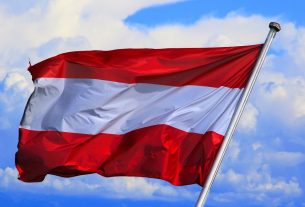According to Advocate General Pikamäe, a strike organised by pilots’ trade unions constitutes, in principle, an extraordinary circumstance that may release the air carrier from its obligation to pay compensation for the cancellation or long delay of the flights concerned.
However, in order to be released from that obligation, the air carrier must prove that it took all reasonable measures to avoid such cancellation or delay.
Airhelp, a company to which a passenger of the air carrier SAS has assigned his possible right to compensation under the Air Passenger Rights Regulation, 1 asks that air carrier to pay it compensation, in the amount of €250, for the same-day cancellation of the flight scheduled for 29 April 2019, which that passenger was to have taken from Malmö to Stockholm, on account of a strike by SAS pilots in Norway, Sweden, and Denmark.
SAS argues that it is not obliged to pay the compensation sought, as the strike constitutes an ‘extraordinary circumstance’ that could not have been avoided even if all reasonable measures had been taken.
The pilots’ strike was organised by their trade unions after those trade unions prematurely terminated the collective agreement previously concluded with SAS, which was due to expire in 2020. Negotiations regarding a new agreement had been ongoing since March 2019. The strike lasted seven days – from 26 April 2019 to 2 May 2019 – and led SAS to cancel more than 4 000 flights, affecting around 380 000 passengers. According to SAS, it was one of the largest strikes ever recorded in the air transport sector. If each passenger were entitled to lump-sum compensation, that would result, according to SAS’s calculations, in a cost of around €117 000 000.
The Attunda tingsrätt (District Court, Attunda, Sweden), before which proceedings have been brought by Airhelp, has asked the Court of Justice to interpret the Air Passenger Rights Regulation.
In his Opinion, delivered today, Advocate General Priit Pikamäe considers, first, that a strike called by a trade union, in the exercise by the air carrier’s staff of the right to strike, with a view to putting demands relating to the improvement of working conditions, where that strike is not triggered by a prior decision of the undertaking but by the workers’ demands, constitutes an ‘extraordinary circumstance’ 2 exempting the air carrier from liability.
According to the Advocate General, such a strike satisfies the two conditions for classification as an extraordinary circumstance that have been defined by the Court, inasmuch as it is not inherent in the normal exercise of the activity of the air carrier and is beyond its actual control.
Indeed, the decision to call a strike is taken by employees’ trade union representatives in the scope of their autonomy as regards collective bargaining and is therefore outside the decision-making structures of the air carrier concerned. Although strikes are part of the economic life of any undertaking, an undertaking has no control over the decisions taken by a trade union. It follows that the air carrier usually has no legally significant influence on whether or not a strike is held, even where its own staff are involved.
The Advocate General observes that the interests of the social partners are, generally speaking, protected in an equivalent manner by the EU legal order. As an employer, the air carrier has the right and responsibility to negotiate an agreement with employees by virtue of the right to collective bargaining enjoyed by the social partners. By contrast, it cannot be held solely liable for the consequences of collective action taken by staff. Otherwise, the right of air passengers to compensation could be ‘exploited’ by social movements for their own ends.
Second, the Advocate General recalls that an ‘extraordinary circumstance’ releases an air carrier from its obligation to pay compensation only if it is able to prove that it took all reasonable measures to avoid the cancellation or long delay of a flight. It cannot, however, be required to agree to make intolerable sacrifices in the light of the capacities of its undertaking at the relevant time.
Thus, according to the Advocate General, the air carrier must use every legal means to defend its interests and, indirectly, those of passengers, including asking the competent courts to find collective actions unlawful and, if appropriate, to order their cessation. In addition, it must allow sufficient reserve time to deal with unexpected incidents, take into account the notice preceding the strike called by the trade union, organise its material and human resources in such a way as to ensure the continuity of operations, and facilitate access to flights operated by other companies.
1 Regulation (EC) No 261/2004 of the European Parliament and of the Council of 11 February 2004 establishing common rules on compensation and assistance to passengers in the event of denied boarding and of cancellation or long delay of flights, and repealing Regulation (EEC) No 295/91 (OJ 2004 L 46, p. 1).
2 In the judgment of 17 April 2018 in Krüsemann and Others (C-195/17 and Others; see also Press Release No 49/18), the Court had decided that the outbreak of a ‘wildcat strike’, organised by the employees themselves (and not by a trade union) as a reaction to the ‘surprise announcement’ by the air carrier of a company restructuring, did not constitute an ‘extraordinary circumstance’. In view of the significant differences in terms of the facts of the case, the Advocate General considers that that assessment cannot be transposed to the present case.
curia.europa.eu


















